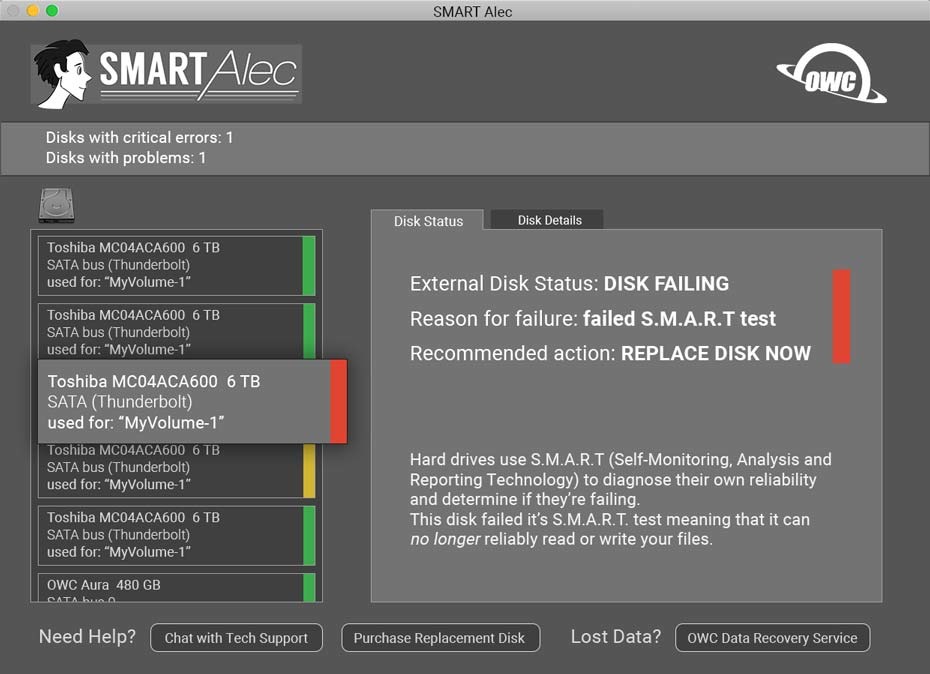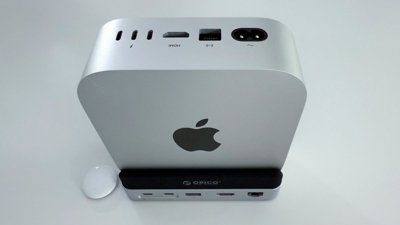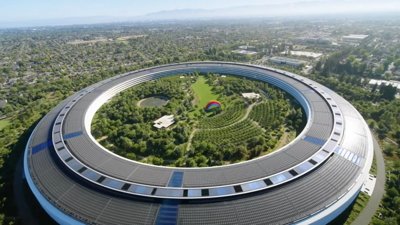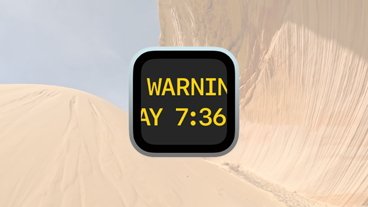Long-time Mac upgrade vendor OWC will soon launch SMART Alec, a utility to keep an eye on the health reporting data from SSDs, hard drives, and Fusion Drives connected to a Mac.
SMART Alec's Advanced Warning System employs "Disk Data Analysis" and "Predictive Failure Analysis," according to the company, to monitor the drives for impending trouble. The app itself will be free, with an in-app purchase allowing for monitoring external drives with compatible enclosures that are able to pass SMART status.
Basic features include pre-emptive warnings of a drive that the utility believes is on the way out, immediate notification of a drive in the process of failing, and a visual representation of disk health. All information is available in a log.
The $9.99 upgrade to the app includes SMART on external drives including Thunderbolt-connected arrays, email notifications of a problem, and the ability to blink a drive's access light corresponding to the disk you've selected in the application, useful for RAID arrays.
In future releases, the app will upload data from users who have opted into data sharing into its self-learning system. The system will analyze performance and failure information from thousands of disks to provide statistical information about the most — and least — reliable disk models available. Data will be shared with which users opt in to the data sharing program.
The free SMART Alec essential drive utility and $9.99 SMART Alec upgrade with USB/FireWire disk monitoring and other additional features will ship in July, with the free version available through the Mac App store. A Windows version is in development.
An open beta is in progress now.
Accurate SMART reporting and predictions rely on predictable failures, which can be spotted from slow input and output processes. Unpredictable failures, such as sudden electronic component failure or catastrophic mechanical failure may not give any warning.
Google studies on consumer grade hard drives in 2006 showed that in the 60 days following the first SMART warning, a drive was on the average 39 times more likely to fail than a drive without the same warning, all other factors identical. It also showed that 36 percent of drives failed without throwing a SMART error.
 Mike Wuerthele
Mike Wuerthele







-m.jpg)






 Malcolm Owen
Malcolm Owen

 Andrew Orr
Andrew Orr
 Andrew O'Hara
Andrew O'Hara

 William Gallagher
William Gallagher

 Christine McKee
Christine McKee




-m.jpg)


11 Comments
Nice.
Drive x for those who don't want to wait.
https://binaryfruit.com/drivedx
I'd like to know why the manufacturers cannot run more test before selling these lemons! Excessive bad sector relocation at the hardware level could be tested prior to selling in in-house testing ... surely? It seems pretty likely many would fail that are sold if tested more.
This quote below from the great support folks at SoftRaid regarding a relatively new Barracuda drive that was part of a large RAID that was flagged as doomed by SoftRAID using SMART. I asked WTF as I was curious. I loved his analogy. Kudos to Mark..
"It is a statistical prediction. But 88 sectors is bad. We generally say simple prediction, the disk is 20-40 times more likely to fail. If a disk is 5% likely to fail in the calendar year, this one is 40-200 times more likely to fail.
On a monthly basis, lets take .5% per month.
This drive is 10-20% likely to fail in the next month.
But it could last a year, or a day.
You go to doctor. BP is 200/140. Cholestrol is 250. Doc says, "you are going to die kid if you don't change. "
"How soon?"
Who knows?
I had an aunt with 220 blood pressure. She never treated it. Ever. Lived to 91. But when she died, what happened was all her veins softened from whatever disease she had and they exploded internally, and she bled out from within. Sad. But she lived for a long time with incredibly high blood pressure. So you never know.
Then there was uncle Jay. Died at 42 from a heart attack. ;-)
So you never know. But stats don't lie, they just indicate.Mark James
How does it compare to the current gold standard (DriveDx)?